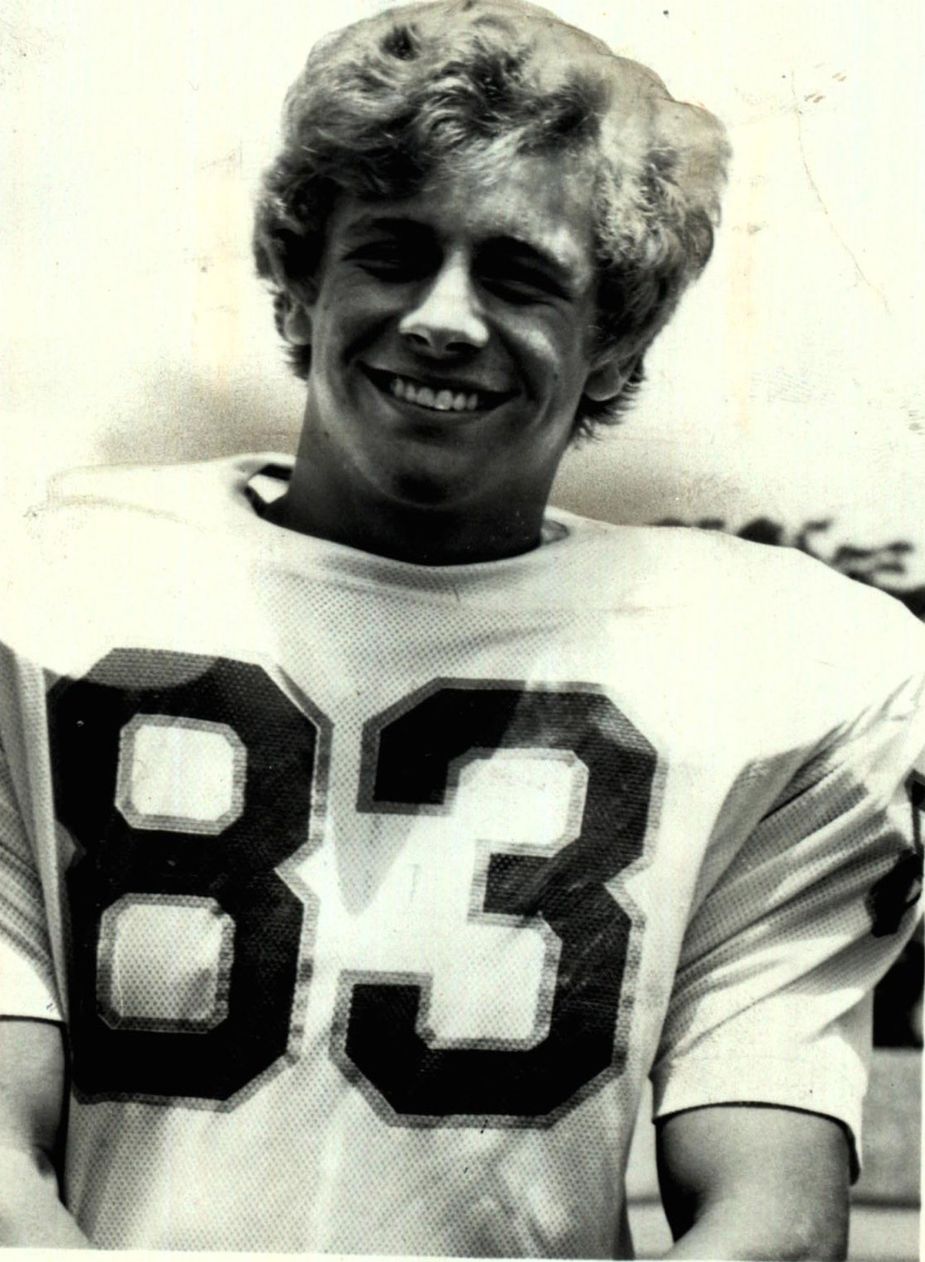Knocking It Out of the Ballpark
Published September 2024
By Doug Wedge | 7 min read
He played fourteen seasons for the Seattle Seahawks and established himself as one of the best pass catchers in the league’s history, but Steve Largent points to his senior year of high school, when the 1972 Putnam City Pirates won the Oklahoma 4A baseball championship, as his proudest moment in sports.
“A lot of people may find that funny, because I ended up playing in the NFL for so long and being inducted into the Hall of Fame—that’s pretty cool, too,” Largent says. “But winning the state championship in Oklahoma was really special. And it wasn’t just because we won. It was because of the guys that I played with and the coach I played for.”

Steve Largent also played football while he attended Putnam City High School. Photo courtesy Oklahoma Historical Society
The team certainly had talent. Two players were selected for All-State honors: Largent as catcher and Bob Shirley as left-handed pitcher. After high school, Shirley pitched for the University of Oklahoma, and by the time he left Norman for the professional ranks after he played eleven seasons, he earned thirty-one wins—more than any other pitcher in OU history. Shortstop Pat Ryan went on to thirteen seasons in the NFL, playing for the New York Jets and Philadelphia Eagles. In fact, one-third of the starting lineup featured future professional athletes.
Guiding the team was Larry Geurkink. Not much older than his players, Geurkink began coaching after college and a season of minor league ball. After a few years at Edmond High School, Geurkink moved to Putnam City, which was, in the early 1970s, the largest high school in Oklahoma. Several players returned from the ’71 team, which fell just short of winning the championship, so Largent and his fellow seniors were hungry.
“There was just a culture at Putnam City of, ‘When you’re a junior, you need to start stepping up, and when you’re a senior, you really need to step up,’” Largent says.
The season started slowly, though, with the team hovering around .500. As the spring weather warmed, so did the team. One reason is because Shirley pitched lights out.
“It wasn’t a lot that I had to do except catch it and throw it back to him,” Largent says. “He was just that good. He was clearly on another level.”
Indeed, against Northwest Classen High School, Shirley struck out the first twelve batters. Against U.S. Grant, he threw a one-hitter to advance the Pirates into the state tournament.
Largent and Shirley already knew each other’s strengths as well. The two had played baseball together since their youthful days at Rollingwood Elementary School.
“We played in the street every night after school ’til it got dark, and our parents called us home for dinner,” Largent says.
Another factor in the team’s success was Geurkink’s leadership.
“He was the third base coach, and if he gave you a signal and you missed it, you got a lick. And there wasn’t any two ways around it,” Largent says.
In addition to attentiveness, Geurkink demanded physical conditioning from each of his players.
“The thing with Coach Geurkink, win or lose, we always ran after a game,” says Shirley, who also ran cross country to stay in shape.
%20copy.jpg)
Bob Shirley struck out many players with his masterful pitches. Photo courtesy Oklahoma Historical Society
But Geurkink had the skills to strike a good balance. With his discipline and plainspoken directions, he mixed encouragement and humor. So he became a sort of a father figure who inspired his players to reach for greatness.
“I think he had a team of guys that would’ve run through a brick wall for him,” Largent says.
At the state tournament, Putnam City won its first game, beating Enid 16-2. Rainy weather arrived, which made Geurkink recall his high school coach’s adage: best be lucky than good. The rain gave Shirley an opportunity to take an extra day of rest, which allowed him to face Tulsa’s Nathan Hale, viewed by many as the best team in the state, and a team that had earlier in the season swept a double-header against PC.
But Hale hadn’t faced Bob Shirley yet. Shirley dominated, earning the win to advance to the championship game against Tulsa’s East Central. When Putnam City scored six runs in the first inning, Geurkink turned to his assistant coach Brad Abant and said, “Brad, we’re going to win the championship today.”
Geurkink was correct. The game ended with a 7-2 Putnam City victory.
Although more than fifty years have passed since they celebrated their championship, Geurkink, Largent, and Shirley remain in contact with one another. They meet at Geurkink’s home and then go for a round of golf every year.
“I really like all of those guys,” Geurkink says. “They’ve been awfully good to me. That’s your paycheck in teaching—when guys like that still stay connected with you.”
The rewards are reciprocal, as the lessons Geurkink passed on to his mentees still resonate after all these years, even beyond the field.
“I sure respected what he taught me,” Shirley says. “It carried on not only in college—it carried to today. I live by a lot of the things I learned then.”







